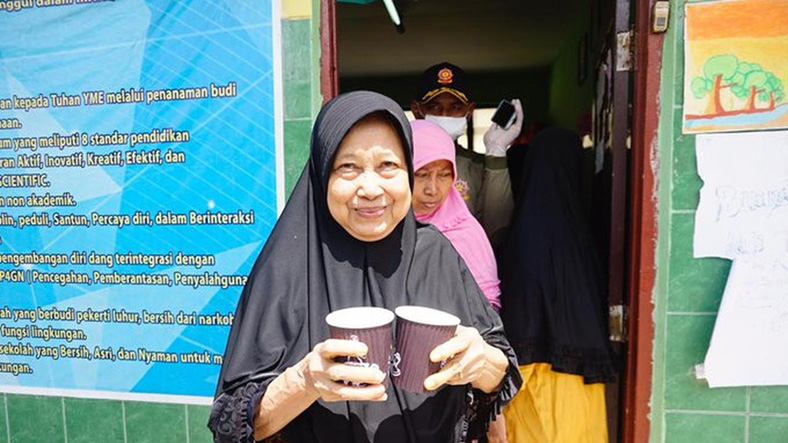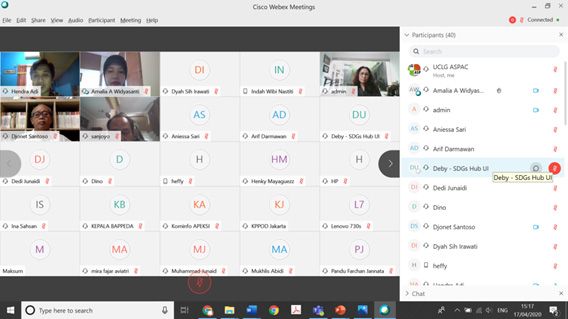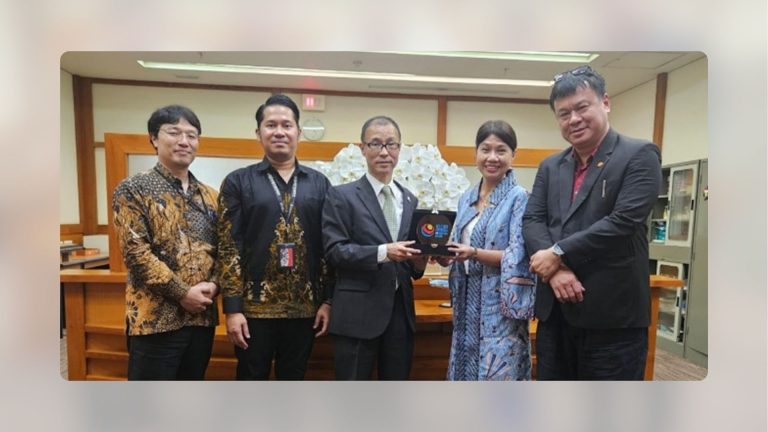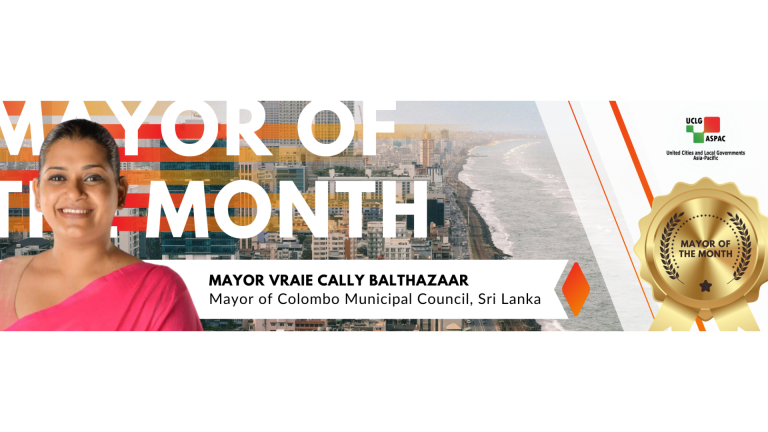THE Corona Virus Disease or COVID-19 has globally shifted and changed the development agenda around the world where governments and people put their best effort to find solutions to end this pandemic and prepare for recovery. Local governments, as front-liner of development, are forced to adapt rapidly. Local governments in Indonesia, in parallel with many policies established to reduce further spread of the infection, have come up with various local initiatives to fight the virus and to address the economic impact caused by the pandemic.
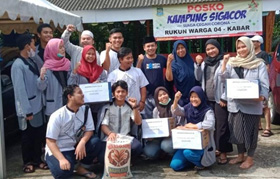 Tangerang City Government has initiated Kampung Siaga Corona or Corona Prepared Village programme as the city location borders with Jakarta, the COVID-19 epicentre. The programme aims at enhancing the knowledge of local people and raising their awareness for clean and healthy lifestyle (Perilaku Hidup Bersih dan Sehat). The programme also targets at the improvement of community security system, development of community-food storage and wide dissemination of information to further educate the community on COVID-19. The programme has also set up task forces at neighbourhood level, which include health officers, military, and community members.
Tangerang City Government has initiated Kampung Siaga Corona or Corona Prepared Village programme as the city location borders with Jakarta, the COVID-19 epicentre. The programme aims at enhancing the knowledge of local people and raising their awareness for clean and healthy lifestyle (Perilaku Hidup Bersih dan Sehat). The programme also targets at the improvement of community security system, development of community-food storage and wide dissemination of information to further educate the community on COVID-19. The programme has also set up task forces at neighbourhood level, which include health officers, military, and community members.
Responding to the increasing number of persons showing relevant symptoms in the city of Semarang, the Mayor made his official residence and city training centre facility into an isolation facility. This way, hospitals can focus on taking care of infected patients. The government has also sprayed disinfectant in the city to help prevent virus transmission in public areas.
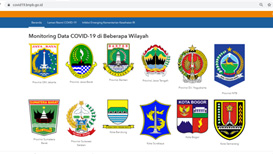 The city of Surabaya, under the leadership of Mayor Tri Rismaharini who is also the President of UCLG ASPAC, has transformed the front yard of city hall into a public kitchen. This is to ensure that protein intake of citizens suffices and local people’s immunity are boosted as prevention initiative. The kitchen has distributed boiled eggs and traditional herbs drink called Pokak to the local people, particularly those living in densely populated area.
The city of Surabaya, under the leadership of Mayor Tri Rismaharini who is also the President of UCLG ASPAC, has transformed the front yard of city hall into a public kitchen. This is to ensure that protein intake of citizens suffices and local people’s immunity are boosted as prevention initiative. The kitchen has distributed boiled eggs and traditional herbs drink called Pokak to the local people, particularly those living in densely populated area.
Allowing the public to monitor the data of COVID-19 is also conducted by local governments in Indonesia. Different provinces in the country developed online platforms for this purpose, such as in the Province of Jakarta (corona.jakarta.go.id), West Java Province (pikobar.jabarprov.go.id) and Central Java Province (corona.jatengprov.go.id). Indonesia National Disaster Management Authority confirmed that most of provinces in Java have developed dedicated websites in addition to West Kalimantan, South Sulawesi and West Nusa Tenggara Province.
LOCALISE SDGs Virtual Discussion – Continued Support for Local Governments in Indonesia
UCLG ASPAC LOCALISE SDGs Programme has continuously been supporting the local governments’ effort in localising SDGs. Given the social distancing measures being implemented due to COVID-19 pandemic, the team has maximised the time to have a virtual discussion with relevant stakeholders in order to update and improve the training module in support of localising SDGs in Indonesia. Conducted on 17 April 2020, the virtual discussion garnered inputs from representatives of the Ministry of Home Affairs, Foreign Development Cooperation of Ministry of National Development Planning, SDGs National Secretariat, from Local Autonomy Monitoring Committee (KPPOD), local governments associations (APEKSI, APKASI and APPSI), and at least six SDGs Centres in Indonesia. Insightful inputs for the development of training module include the update of law and regulations, suggestions for monitoring and evaluation, and expansion of stakeholder participation. Furthermore, as COVID-19 has also required local governments to re-focus on shifting the local resources in facing the challenges, incorporation of local efforts to minimise the impact of COVID-19 challenge in attaining SDGs is deemed necessary. Participants also expressed their interest to get involved in LOCALISE SDGs online training and discussions during the work from home period. LOCALISE SDGs, a joint programme of UCLG ASPAC and Association of Indonesia Municipalities (APEKSI) and funded by the European Union, is currently following up the inputs and preparing for discussion series to be conducted virtually.








